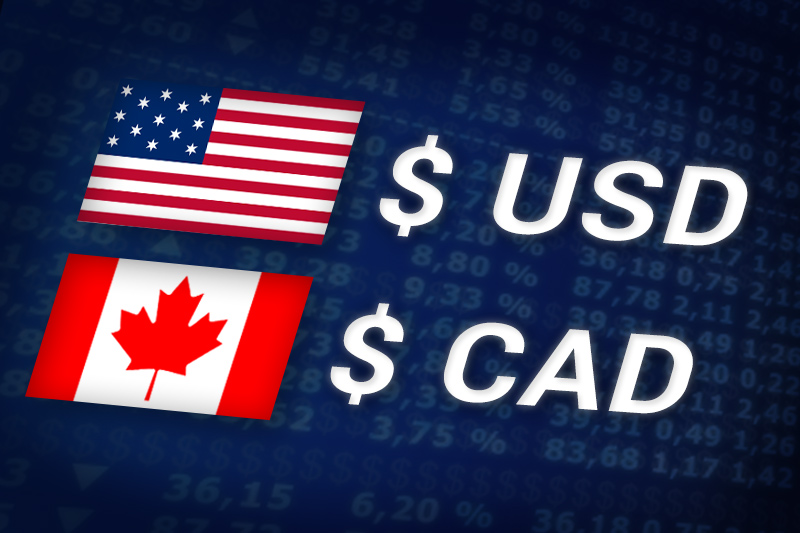Investing.com’s stocks of the week
Investing.com - The Canadian dollar erased gains against its U.S. counterpart on Wednesday, as investors awaited a detailed monetary policy report form the Bank of Canada after the bank left its interest rate unchanged the previous day.
USD/CAD pulled away from 1.0118, the daily low to hit 1.0157 during U.S. morning trade, inching up 0.05%.
The pair was likely to find support at 1.0112, Tuesday’s low and a two-week low and short-term resistance at 1.0187, Tuesday’s high.
On Tuesday, the BoC said the outlook for the global economy had “deteriorated” after it left its benchmark interest rate unchanged at 1%.
In its rate statement, the BoC said the uncertainty over the global economic outlook had increased since its October monetary policy report, adding that the recession in Europe was expected to be “deeper and longer" than earlier forecast.
The Canadian dollar also came under pressure from falling oil prices, following the release of a flurry of downbeat U.S. economic data, while concerns over the euro zone’s sovereign debt crisis continued to weigh on sentiment.
U.S. data showed that producer price inflation declined by a seasonally adjusted 0.1% in December, confounding expectations for a 0.1% gain.
But core PPI, which excludes the volatile food and energy categories, rose 0.3% in December, taking the annualized rate of increase to 3.0%, the fastest increase since mid-2009.
A separate report showed that industrial production in the U.S. rose less-than-expected in December, while the previous month’s figure was downwardly revised to show a bigger decline.
Crude oil for delivery in March trimmed gains following the data, to trade at USD101.03 a barrel on the New York Mercantile Exchange, off an earlier high of USD102.23.
Raw materials, including oil account for about half of Canada’s export revenue.
The Canadian dollar was also lower against the euro, with EUR/CAD jumping 0.83% to hit 1.3035.
Also Wednesday, Greek Prime Minister Lucas Papademos was resuming talks with bond holders to discuss a voluntary write-down on Greece’s sovereign debt.
Greece needs to secure an agreement on restructuring its debt in order to access new bailout funds and avert a default when an EUR14.4 billion bond redemption comes due on March 20.
USD/CAD pulled away from 1.0118, the daily low to hit 1.0157 during U.S. morning trade, inching up 0.05%.
The pair was likely to find support at 1.0112, Tuesday’s low and a two-week low and short-term resistance at 1.0187, Tuesday’s high.
On Tuesday, the BoC said the outlook for the global economy had “deteriorated” after it left its benchmark interest rate unchanged at 1%.
In its rate statement, the BoC said the uncertainty over the global economic outlook had increased since its October monetary policy report, adding that the recession in Europe was expected to be “deeper and longer" than earlier forecast.
The Canadian dollar also came under pressure from falling oil prices, following the release of a flurry of downbeat U.S. economic data, while concerns over the euro zone’s sovereign debt crisis continued to weigh on sentiment.
U.S. data showed that producer price inflation declined by a seasonally adjusted 0.1% in December, confounding expectations for a 0.1% gain.
But core PPI, which excludes the volatile food and energy categories, rose 0.3% in December, taking the annualized rate of increase to 3.0%, the fastest increase since mid-2009.
A separate report showed that industrial production in the U.S. rose less-than-expected in December, while the previous month’s figure was downwardly revised to show a bigger decline.
Crude oil for delivery in March trimmed gains following the data, to trade at USD101.03 a barrel on the New York Mercantile Exchange, off an earlier high of USD102.23.
Raw materials, including oil account for about half of Canada’s export revenue.
The Canadian dollar was also lower against the euro, with EUR/CAD jumping 0.83% to hit 1.3035.
Also Wednesday, Greek Prime Minister Lucas Papademos was resuming talks with bond holders to discuss a voluntary write-down on Greece’s sovereign debt.
Greece needs to secure an agreement on restructuring its debt in order to access new bailout funds and avert a default when an EUR14.4 billion bond redemption comes due on March 20.
